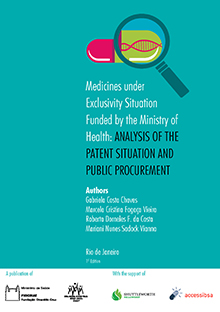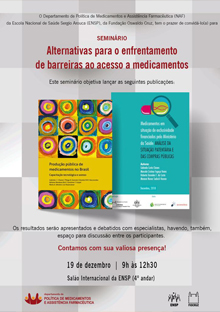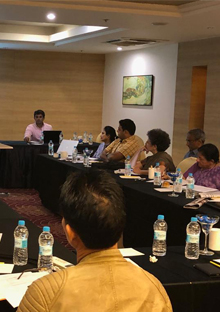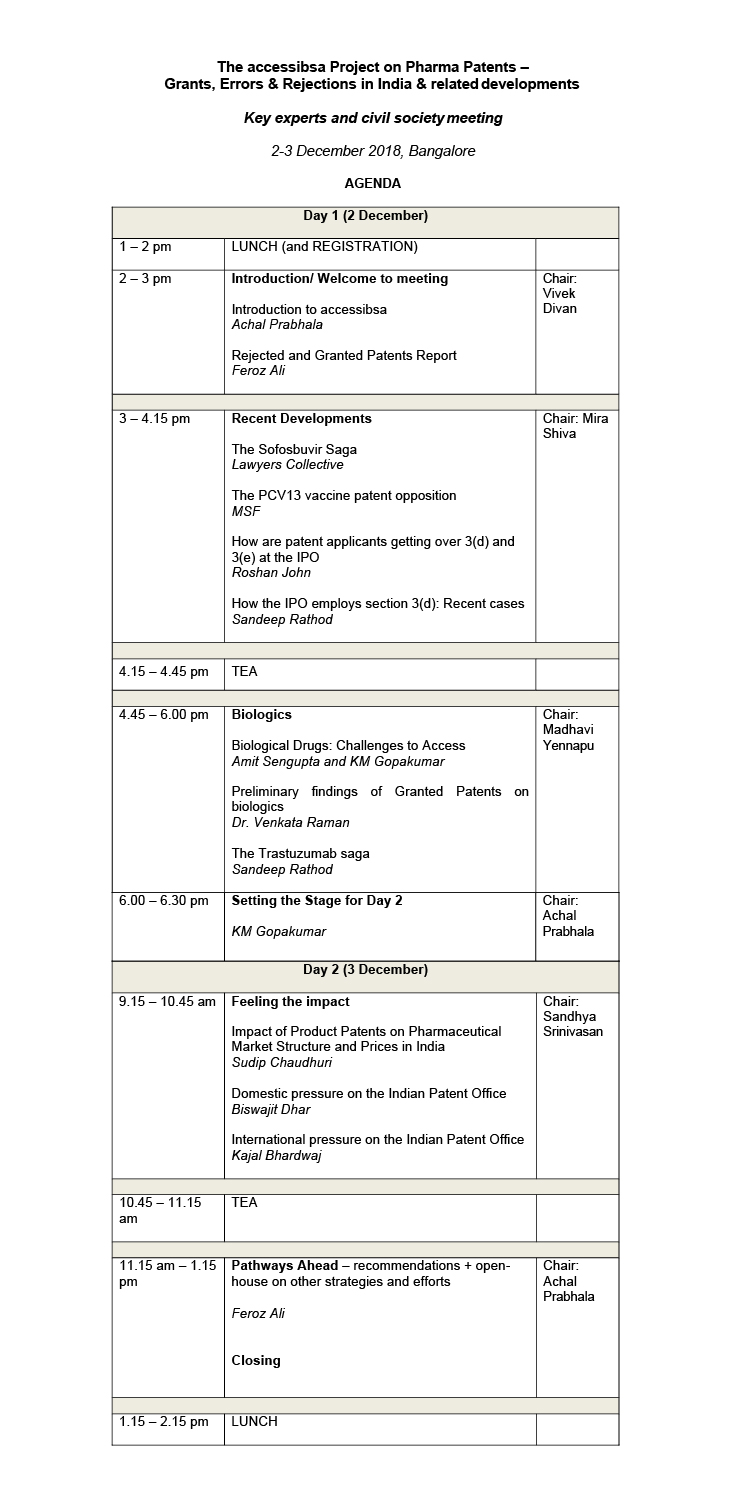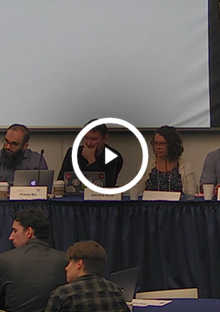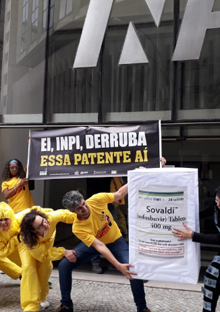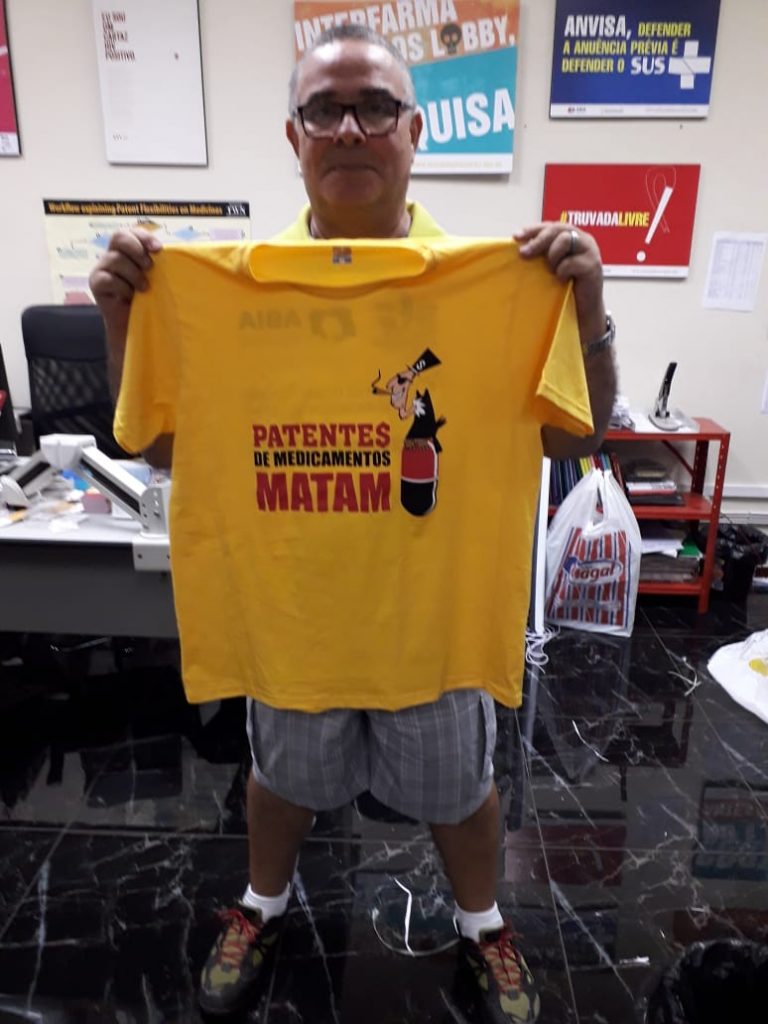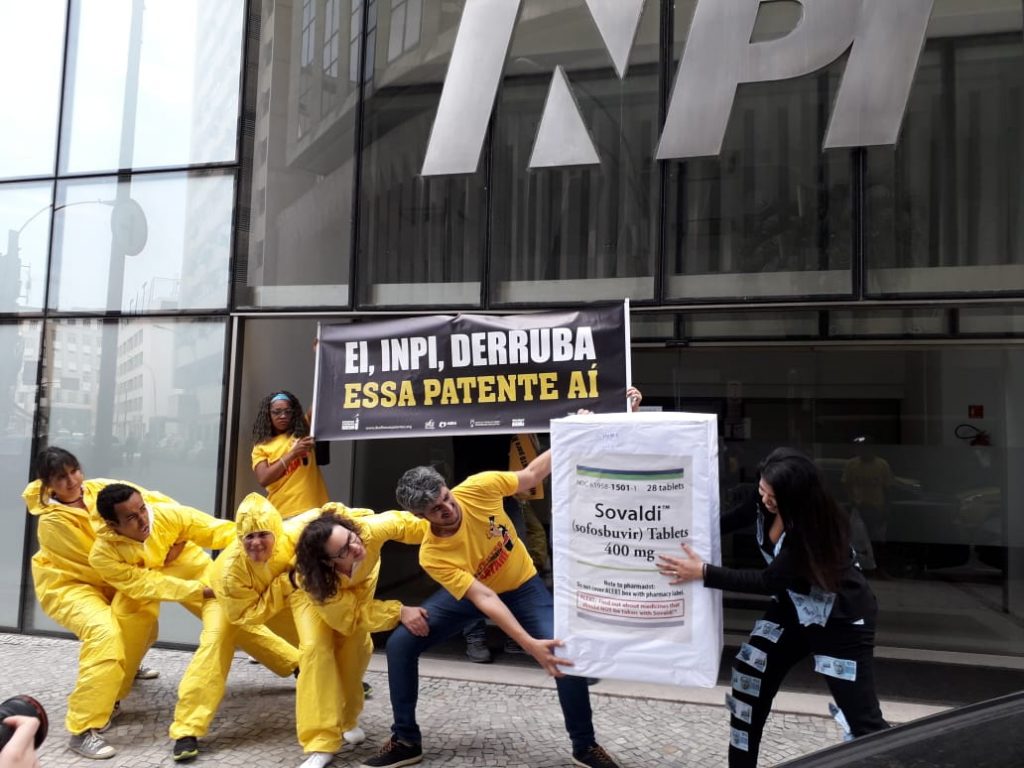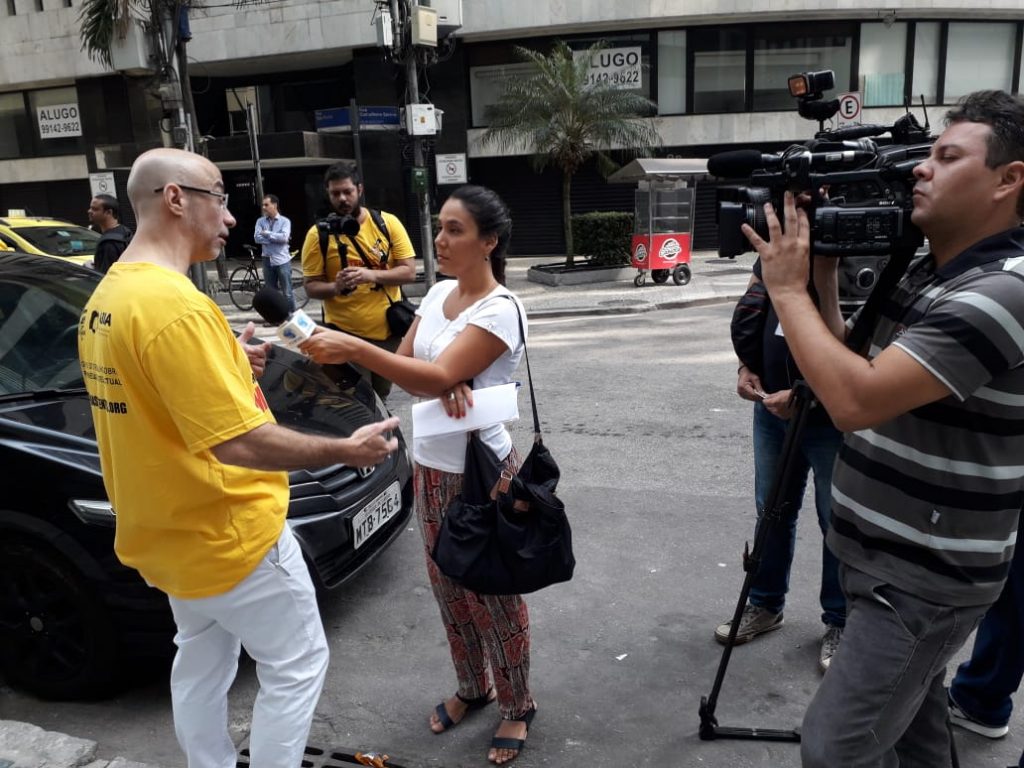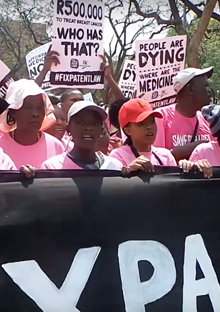Indian Civil Society letter to J&J
September 16, 2021

From: Indian Civil Society Organisations
To: Johnson & Johnson -and- the Government of the United States
cc: Government of India
17:00, 16th September, 2021
- 600 million doses of the Johnson & Johnson vaccine currently being made in India cannot go to the European Union or the United States; they must go where they are most needed.
- Johnson & Johnson has failed to produce enough of its own vaccine; the United States Government has the power to make them license manufacturers all over the world in order to make billions more doses of their vaccine available.
The problem
600 million doses of the Johnson & Johnson (J&J) single dose vaccine – enough to vaccinate 600 million people – are being produced in India by Biological E, a Hyderabad-based company, on contract from J&J. As things stand, these vaccines will likely be exported to the European Union (EU) and the United States (US), where more than 50% of adults have been fully vaccinated, instead of going to India, which has only vaccinated 13% of its population to date, or to the African continent, where the equivalent figure is 3%.
J&J has consistently failed to supply large quantities of its vaccine to any country in the world. While global demand for the J&J vaccine is robust, with good reason, demand for the vaccine is falling in some rich countries. The company’s unwillingness to license other manufacturers around the world, under the circumstances, is therefore both inexcusable and inexplicable.
The solution
J&J must send these 600 million vaccines, some of which are ready, to where they are most needed and not where they can make the most money. At the moment, J&J has unfulfilled orders from the EU and the US among other rich countries, all of whom have been hoarding and ordering doses in excess of their domestic needs. There is undoubtedly much money to be made by fulfilling these contracts. But these countries are not where vaccines are most needed.
Vaccines are most needed in India and the African continent, and by the COVAX Facility, a global philanthropic initiative to get vaccines to the poorest countries in the world. Developing countries with large unvaccinated populations are witnessing a frightening rise in infections and deaths from COVID-19. J&J must prioritise them.
We demand that any J&J vaccine doses made in India be supplied on priority to the Indian government, the African Union, and the COVAX Facility.
J&J does not care about developing countries except when forced to
Over the last few months, J&J has behaved negligently and callously in South Africa. Aspen Pharmacare, a South African pharmaceutical company, was contracted by J&J to produce 300 million doses of the J&J vaccine on a “fill and finish” basis. Initially, the contract did not guarantee any supply to either South Africa or the African continent. After the South African government and civil society highlighted the issue, a small quantity of these doses was set aside for the country.
When vaccine doses from South Africa started being shipped out to Europe last month, and it came to light that J&J had forced the government of South Africa to allow these exports, the problem resurfaced. Why were valuable vaccine doses, produced on the African continent, not going to the continent? And why were they being sent, instead, to Europe, a continent with high vaccination rates and multiple options?
After a renewed protest and global outrage, J&J backed down, and began supplying South Africa and the African Union with the doses they had been promised and deserved. J&J does not seem to understand that some countries need vaccines more than others – until they are publicly shamed into doing so.
A similar situation is now playing out in India.
India has a Covid vaccine crisis; J&J doesn’t seem to know – or care
The government of India committed, in court, to vaccinating all adults before the end of this year. In line with this goal, the Indian drug regulatory authority quickly provided J&J with an Emergency Use Authorisation. Despite clear signs that India will not have enough vaccines to accomplish this goal, J&J has not committed to supply any of their vaccines to the country.
On September 15, one day before this letter was published, Mahima Datla, the Managing Director of Biological E confirmed to Nature magazine that though her company is producing 40 million J&J doses every month, she does not know where they will go. “The decision on where they will be exported, and at what price, is under the purview of J&J completely,” she said.
J&J needs to do more: it must provide manufacturing licenses to many more companies
J&J has so far failed to provide global access to its vaccine, just as the majority of western pharmaceutical companies with effective Covid vaccines have failed to do. As a result, India, among several other developing countries, formulated a vaccination strategy that depended on the local manufacture of large quantities of the Sputnik-V vaccine, developed in Russia.
Sputnik-V has shown strong evidence of efficacy. But it has a production problem which is leading to a drastic shortfall in supplies of the vaccine to countries like India.
Over the last year, the Gamaleya Institute and the Russian Direct Investment Fund created an impressive global network of vaccine manufacturers for Sputnik-V. Of those manufacturers, 34 are based outside Russia, in countries ranging from India to Argentina and South Korea. The problem is that few or none of these manufacturers have been able to make the large quantities of Sputnik-V doses they planned to.
To make Sputnik-V in large quantities, these manufacturers have to grow two adenoviruses: ad26 and ad5, one each for the first and second doses of the vaccine. The process they were given to grow the ad26 vector works; the process to grow the ad5 vector does not. This is due to no fault of the manufacturers but rather because of a process flaw in the way mass-production of the Sputnik-V vaccine was designed by its original developers. At this stage, it is not clear when this problem may be resolved – or if it will be at all.
However, because most of these 34 licensed manufacturers of Sputnik-V have spent the last year working out a process to successfully manufacture an adenoviral vector vaccine, they can easily and quickly adapt to making the J&J vaccine which is based on the same ad26 vector.
US President Biden has the power to make the J&J vaccine globally available
J&J – which received over $1 billion in federal funding from American taxpayers for research and development alone – has struggled to make large quantities of its vaccine; supplies both to the EU and the US have fallen significantly short of their original forecasts. At the same time, for a range of reasons, the US domestic desire for the J&J vaccine has dimmed in favor of the alternatives. Yet, this vaccine remains in high demand – with good reason – in countries without the same alternatives.
If US President Biden is indeed serious about vaccinating the world, his administration has the moral, legal, and if necessary, financial power to lift intellectual property barriers and persuade J&J to license its vaccine, with technology and assistance included, to every manufacturer currently engaged in making the Sputnik-V vaccine. Unlike the EU, which has been steadfast in its refusal to change the status quo, the US has already committed support to a waiver of pharmaceutical monopolies in the pandemic at the World Trade Organisation; liberating the J&J vaccine would be a powerful expression of this commitment.
Several manufacturers around the world, including in the West, have shown an ability and willingness to make the J&J vaccine – but have been denied the permission to do so. Now we have 34 Russian-contracted manufacturers who we know for certain have the ability to make it. Even if a few companies from this long list were put to work and given what they need, the world could have billions more J&J vaccine doses to use in the pandemic. And finally, if licensed as we suggest here, the J&J vaccine would be made at the licensee’s cost, as manufacturers have done before with the Sputnik-V vaccine, thus solving both J&J’s problems and the world’s.
From:
Third World Network Trust (India)
The AccessIBSA Project
Sankalp Rehabilitation Trust
Forum For Medical Ethics Society
Liberation Technology (LibTech) India
Centre for Law & Policy Research
Jan Swasthya Abhiyan
Drug Action Forum, Karnataka
SAMA Resource Group for Women and Health
Lawyers Collective
Campaign for Access to Medicines (India)
Delhi Network of Positive People, DNP+
International Treatment Preparedness Coalition (ITPC), South Asia
Global Coalition of Tuberculosis (TB) Activists, India
Contact:
Leena Menghaney (leenamenghaney@gmail.com)
K.M. Gopa Kumar (kmgkumar@gmail.com)
Achal Prabhala (info@accessibsa.org)
Annexure: Sputnik V manufacturers* around the world (excluding Russia):
| Country | Company |
| Argentina | Laboratorios Richmond S.A |
| Algeria | Saidal |
| Belarus | Belpharmprom (Belmedpreparaty) |
| Brazil | Uniao Quimica |
| Brazil | Tecpar |
| China | Tibet Rhodiola Pharmaceutical Holding Co. |
| China | TopRidge Pharma |
| China | Shenzhen Yuanxing Gene-tech |
| China | Hualan Biological Bacterin (Engineering) |
| Egypt | Minapharm |
| Germany | R-Pharm |
| Kazakhstan | Karaganda |
| India | Virchow Biotech |
| India | Stelis Biopharma |
| India | Hetero Biopharma |
| India | Dr Reddy’s Laboratories |
| India | Panacea Biotec Ltd |
| India | Gland Pharma |
| India | Morepen |
| India | Serum |
| India | Wockhardt |
| Iran | Actoverco |
| Italy | Adienne Pharma |
| Italy | Biotech SA |
| Kazakhstan | Karaganda Pharmaceutical Enterprises |
| Malaysia | Duopharma (M) Sdn Bhd |
| Mexico | Landsteiner Pharmaceutical |
| Pakistan | Ali Gohar Pharmaceuticals |
| Republic of Korea | GL Rapha |
| Republic of Korea | Huons Global |
| Serbia | Generium |
| Turkey | VisCoran Ilac Sanayii A.S. |
| Uzbekistan | LAXISAM |
| Vietnam | Vabiotech |
*Most of the companies on this list are manufacturing Sputnik-V from start to finish; some, however, are currently limiting their role to fill-and-finish production, or marketing & distribution of the vaccine.

